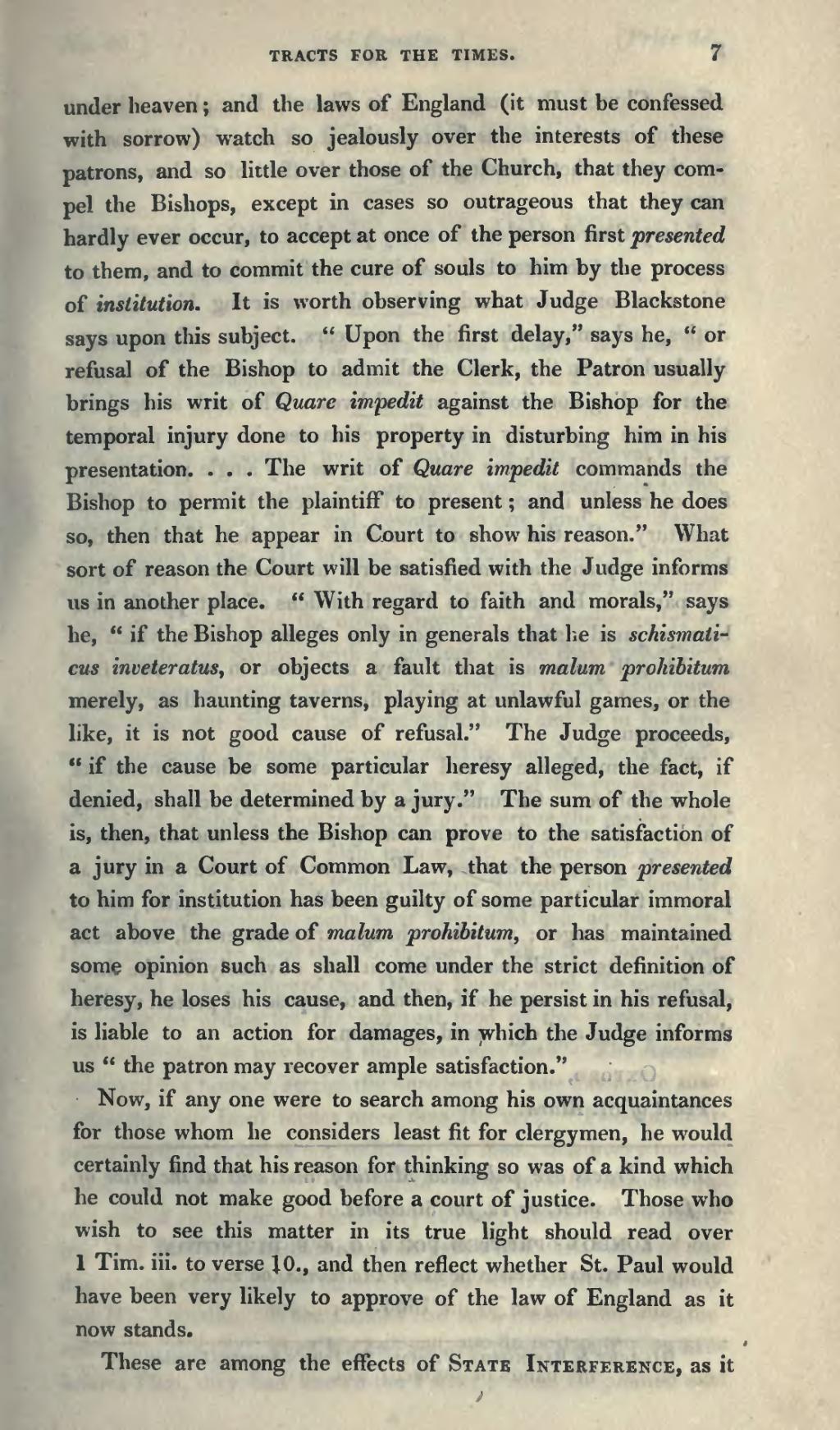under heaven; and the laws of England (it must be confessed with sorrow) watch so jealously over the interests of these patrons, and so little over those of the Church, that they compel the Bishops, except in cases so outrageous that they can hardly ever occur, to accept at once of the person first presented to them, and to commit the cure of souls to him by the process of institution. It is worth observing what Judge Blackstone says upon this subject. "Upon the first delay," says he, "or refusal of the Bishop to admit the Clerk, the Patron usually brings his writ of Quare impedit against the Bishop for the temporal injury done to his property in disturbing him in his presentation.… The writ of Quare impedit commands the Bishop to permit the plaintiff to present; and unless he does so, then that he appear in Court to show his reason." What sort of reason the Court will be satisfied with the Judge informs us in another place. "With regard to faith and morals," says he, "if the Bishop alleges only in generals that he is schismaticus inveteratus, or objects a fault that is malum prohibitum merely, as haunting taverns, playing at unlawful games, or the like, it is not good cause of refusal." The Judge proceeds, "if the cause be some particular heresy alleged, the fact, if denied, shall be determined by a jury." The sum of the whole is, then, that unless the Bishop can prove to the satisfaction of a jury in a Court of Common Law, that the person presented to him for institution has been guilty of some particular immoral act above the grade of malum prohibitum, or has maintained some opinion such as shall come under the strict definition of heresy, he loses his cause, and then, if he persist in his refusal, is liable to an action for damages, in which the Judge informs us "the patron may recover ample satisfaction."
Now, if any one were to search among his own acquaintances for those whom he considers least fit for clergymen, he would certainly find that his reason for thinking so was of a kind which he could not make good before a court of justice. Those who wish to see this matter in its true light should read over 1 Tim. iii. to verse 10., and then reflect whether St. Paul would have been very likely to approve of the law of England as it now stands.
These are among the effects of State Interference, as it
